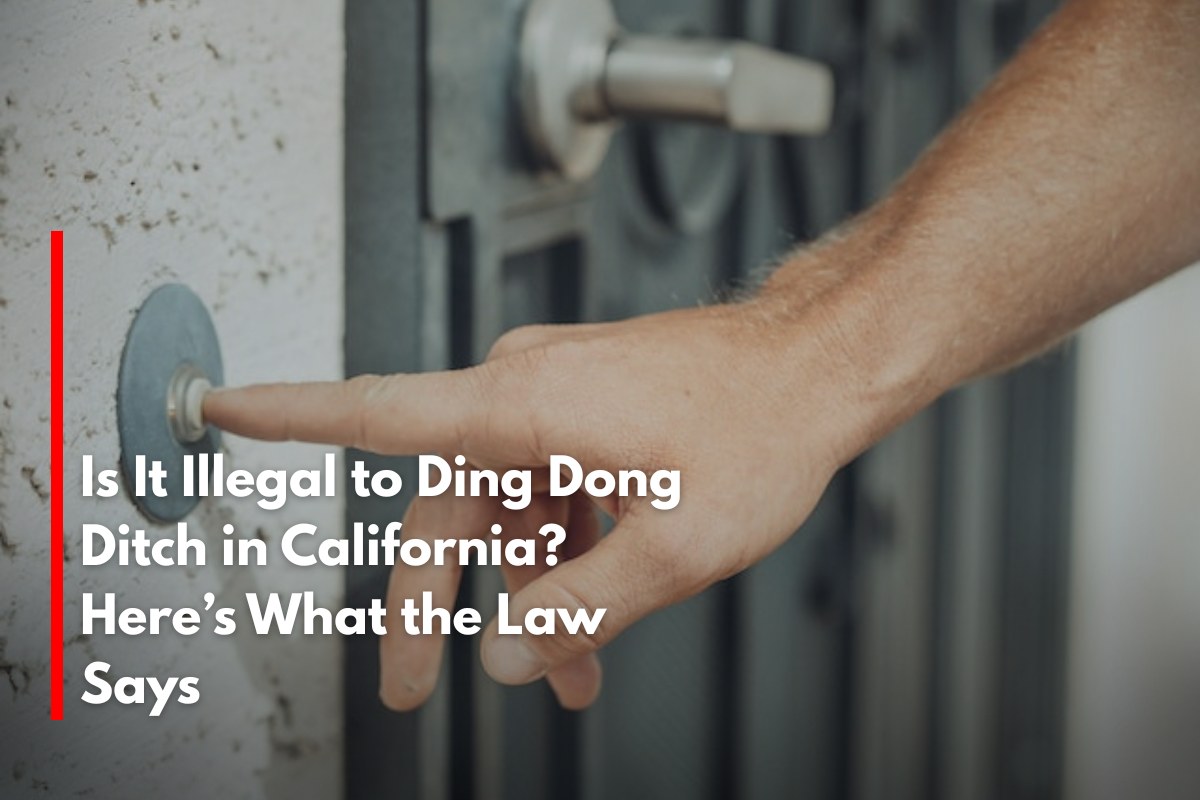Ding dong ditching—the act of ringing a doorbell and running away before the homeowner answers—is not explicitly illegal in California, but it can become unlawful depending on the circumstances and local ordinances.
General Legal Status in California
Not inherently a crime: Simply ringing a doorbell and running away is not, by itself, a criminal offense in California. It is generally seen as a nuisance or prank, and there is no statewide law that specifically bans ding dong ditching.
Trespassing: The act can cross into illegality if the property is clearly marked with a “No Trespassing” sign, or if the homeowner has previously told the prankster to stay away. In such cases, entering the property—even briefly—can be prosecuted as trespassing under California Penal Code 602.
Harassment or Disorderly Conduct: If the prank is repeated, targeted, or causes significant distress, it may be considered harassment or disorderly conduct. For example, repeatedly disturbing a specific resident or neighborhood could result in misdemeanor charges.
Escalation to Other Crimes: If the prank involves property damage, threats, or is intended to intimidate, it could lead to more serious charges such as vandalism or harassment.
Key Factors That Determine Illegality
| Factor | Legal Implication in California |
|---|---|
| First-time, isolated prank | Usually not prosecuted |
| “No Trespassing” signs present | Can be charged as trespassing |
| Prior warning to stay off property | Can be charged as trespassing |
| Repeated or targeted behavior | May be charged as harassment or disorderly conduct |
| Prank causes property damage | Can be charged as vandalism |
| Prank causes fear or distress | May be prosecuted as harassment or disorderly conduct |
Consequences
Warnings: First-time or minor incidents often result in a warning from law enforcement.
Fines and Misdemeanor Charges: Repeat offenses or aggravating factors (like property damage or distress) can lead to fines, community service, or misdemeanor charges.
Criminal Record: In more serious cases, especially with repeated or malicious intent, individuals—especially adults—could end up with a criminal record.
Minors and Parental Responsibility
Many ding dong ditchers are minors. While the juvenile justice system may handle these cases with more leniency, parents could be held responsible for damages or fines, especially if property is damaged or someone is harmed.
Practical Advice
Respect property boundaries: Avoid properties with “No Trespassing” or similar signage.
Do not repeat the prank: Repeated actions can escalate to criminal charges.
Avoid causing harm or fear: If the prank causes distress, it can be prosecuted as harassment or disorderly conduct.
While ding dong ditching is not automatically illegal in California, it can become a criminal matter if it involves trespassing, harassment, disorderly conduct, or property damage. The key factors are intent, repetition, and the homeowner’s response. What may seem like a harmless prank can have legal consequences, so it’s important to understand and respect the law.
Sources
[1] https://vistacriminallaw.com/doorbell-ding-dong-ditching/
[2] https://www.legalreach.com/blog/is-ding-dong-ditching-illegal-it%E2%80%99s-more-serious-than-you-might-think
[3] https://www.lawlegalhub.com/is-it-illegal-to-ding-dong-ditch/
[4] https://www.aol.com/ding-dong-ditch-doorbell-game-163258854.html
[5] https://www.youtube.com/watch?v=lVR3ZCodle8











